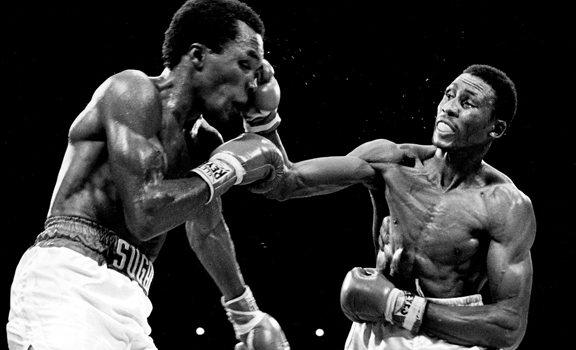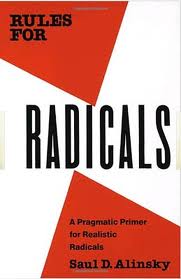SEEING THE RULE
Often, the establishment maintains a sense of security due to a lack of disagreement. Alinsky believed that when one’s ideological adversary is back on their heels, it is important to continue to ask them questions. Take the debate to them. Make them feel out of their element and insecure and they will often self-destruct, especially if they become angry or frustrated and speak out of those emotions.
A boxer who slows down when his opponent becomes wobbly is not playing to win, yet Alinsky describes this as a common problem with those who are trying to change the status quo. Playing to weaknesses is important.
Alinsky’s Rule #3 is used often, especially in politics. Observe how many candidates in debates and interviews are blind-sided by seemingly irrelevant issues which they are then forced to address. Rather than argue something pertinent, political debate too often shifts to ad hominem attacks and substantive issues are quickly lost, because of the human tendency to exploit your opponent’s weaknesses.
USING THE RULE
While going outside one’s expertise is something to avoid with your own group, Alinsky taught that it is a weapon when approaching your opponent. He counseled movement-makers to look for ways to increase insecurity, anxiety and uncertainty on the opponent’s side of the issue.
You and your group can often press a policy out of favor if it has been in place for a while by simply asking those who enforce it to justify it. In many cases the policy’s initial cause has been forgotten and the current policy enforcer is simply “doing his job.” So when your group starts asking why it’s there, what caused it in the first place, and so on, you bring the administrators of the rules into a place of insecurity.
Sometimes you can create weakness by challenging your ideological adversary in a form of media that is hard to control. Here’s an example of that as explained by another LI student host, from Gustavus Adolphus College:
“Whenever possible, go outside the expertise of the enemy. Look for ways to increase insecurity, anxiety and uncertainty.”








